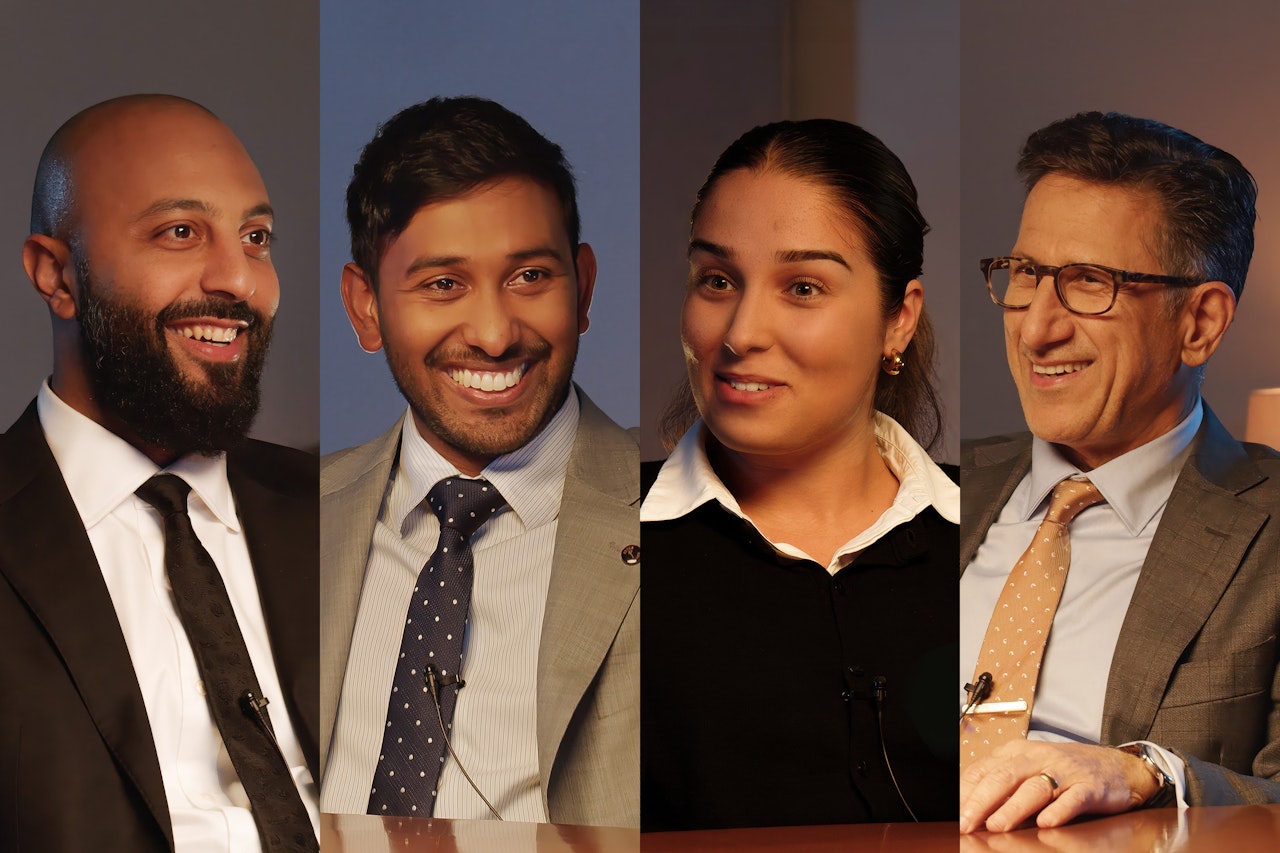
InConversation
Families foster belonging in Australian neighborhoods
The latest podcast episode explores how neighbors and groups of families in Australia are learning to support one another by applying spiritual principles to daily life.

The latest podcast episode explores how neighbors and groups of families in Australia are learning to support one another by applying spiritual principles to daily life.
BAHÁ’Í WORLD CENTRE — In the latest podcast episode of “In Conversation,” guests from Australia explore how several neighborhoods across the country are striving to foster unity and a sense of belonging, sharing practical examples from experiences in Bahá’í community-building endeavors.
“The way to overcome loneliness is through service,” says Vahid Saberi, a member of the Board of Counsellors in Australasia.
Dr. Saberi adds that this principle of service shapes communities where people build relationships through collective action and avoid isolation. The most vibrant communities, he explains, are those where neighbors live within walking distance of one another and “where there is multi-generational interaction.”
At the heart of these efforts in neighborhoods across Australia are moral and spiritual educational programs that span all generations.
Shirrine Rohanian, who serves in a local Bahá’í agency, observes that as families engage in these educational programs and take practical action for the betterment of their neighborhood, they develop what she describes as “a deeper sense of purpose” that empowers them to “take ownership of their social environment.”
Ms. Rohanian explains that participation in community-building activities nurtures deep bonds of trust and friendship among neighbors, creating discussion spaces where families feel empowered to address challenges together.
Hari Remala, who also serves in a Bahá’í agency at the local level, describes a neighborhood where a group of about ten families in one neighborhood have learned to “speak quite freely and openly with each other” about challenges that are typically considered private matters.
“Society shapes us in a manner that is quite individualistic,” he explains. “But in some places this culture is beginning to change and we’re recognizing that a lot can be achieved when people cooperate together.”
As growing groups of families learn to address challenges collectively rather than struggling in isolation, Dr. Saberi explains that communities strengthen social cohesion through “building a community together, interacting in an ongoing way”—creating neighborhoods where people genuinely know and support one another beyond superficial interactions.
The transformative power of this collective approach becomes evident in how communities respond to youth challenges. Hossein Jaberi Khormouji, an Auxiliary Board member, shares an account from a Brisbane neighborhood where young people identified vaping and bullying as major problems in their school.
When mothers in the community learned that the school’s efforts at combating bullying was proving ineffective, they consulted together and created “Healthy Minds” conversation nights. These gatherings, which attracted 40 to 50 people beyond the immediate group of families, bring together young people and parents to study spiritual principles and consult on solutions.
“They’re not pretending this is the cure for all,” Mr. Khormouji explains, “but the discussions provide a space where families can actually talk about challenges.”
Mr. Khormouji notes that creating such communities “requires the commitment and efforts of many people every day for many years.”
He explains that this sustained dedication springs from a spiritual understanding and that when people reflect profoundly on Bahá’u’lláh’s teaching that “the betterment of the world can be accomplished through pure and goodly deeds,” they are eager “to commit their lives to the betterment of others.”
This commitment, he adds, stems from recognizing that “other humans are also the children of God”—a recognition that transforms individual concern into collective care.
The podcast episode is part of the “In Conversation” series, a collective exploration by several individuals of the practical application of Bahá’í principles to the building of peaceful societies.